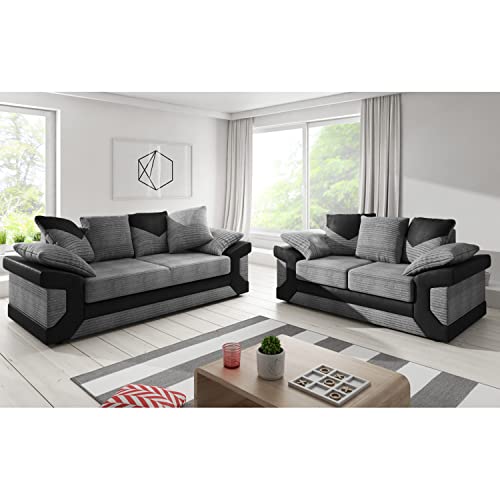Over the last few years, the United Kingdom has seen a substantial shift in customer preferences towards comfortable, stylish, and functional furniture. The demand for "comfy furniture" has actually risen, especially as individuals increasingly prioritize convenience in their home. This post aims to check out the trends, materials, designs, and essential ideas for picking comfy furniture for homes in the UK.
Comfy furniture describes pieces designed not only for aesthetic appeal but likewise for optimum convenience and relaxation. This classification might include sofas, chairs, beds, and even outside furniture that encourages leisure and reprieve. The increase in working from home has further sustained the demand for relaxing furniture as people seek to develop serene environments conducive to relaxation and performance.
A number of crucial patterns have emerged in the comfy furniture segment within the UK market. These patterns reflect changing way of lives and preferences in home design.
As awareness of ecological effects grows, so does the popularity of sustainable furniture. Customers are showing a marked choice for pieces made from recycled, recovered, or sustainably sourced products.

With a boost in smaller sized home, particularly in urban locations, multifunctional furniture has ended up being important. Comfy sofas that transform into beds or coffee tables that can expand are hot patterns.
More retailers are providing personalization alternatives, permitting customers to pick fabric types, colors, and setups. This bespoke approach ensures that the furniture fits completely with the property owner's style and area.
This style ethos concentrates on connecting residents with nature through organic shapes, natural products, and ample plant. Comfy furniture now often includes natural aspects that evoke harmony and convenience.
There's a notable revival in vintage and retro designs, with numerous customers opting for classic shapes that blend modern comfort with historic essence.
When picking comfy furniture, numerous elements need to be considered to make sure that the pieces not just look great however likewise provide the wanted comfort and functionality.
Material
Pick textiles that are soft yet long lasting. Natural materials like cotton, linen, and wool use excellent convenience, while leather can provide warmth and elegance.
Support
Check the supportiveness of chairs and sofas. Examine for quality cushions and think about pieces with integrated lumbar support for much better posture.
Size and Scale
Procedure your area before acquiring. A piece that is too large can overwhelm a space, while too small can appear lost in the space.
Style Compatibility
Guarantee the selected furniture complements existing decor. A cohesive visual boosts convenience and appeal.
Functionality
Consider how the furniture will be utilized. Select pieces that can adjust to your lifestyle, such as blue Sofas that recline or tables that extend.
Choosing comfy furniture comes with numerous advantages that contribute to a boosted lifestyle. A few of these include:
The UK market boasts a range of brands that concentrate on comfy furniture. Below is a table highlighting a few of the most popular brands known for their quality and comfort.
| Brand | Expertise | Cost Range |
|---|---|---|
| DFS | Sofas and armchairs | ₤ 500 - ₤ 3,000 |
| Made.com | Stylish, contemporary furniture | ₤ 300 - ₤ 2,500 |
| Dwell | Modern and urban furniture | ₤ 250 - ₤ 2,000 |
| Habitat | Ingenious and stylish designs | ₤ 150 - ₤ 1,500 |
| John Lewis | High-quality, varied home items | ₤ 200 - ₤ 3,000 |
The most comfortable materials typically include cotton, linen, and velvet. These products are soft to the touch and breathable.
Routine cleaning, using suitable fabric protectors, and avoiding direct sunshine can assist preserve furniture quality.
Definitely! Mixing designs can produce a diverse and tailored appearance, as long as there is a cohesive color combination or theme.
Purchasing high-end furniture frequently results in better durability, convenience, and style durability, making it rewarding in the long term.
Look for brands that utilize licensed sustainable products and ethical manufacturing practices. Accreditations like FSC (Forest Stewardship Council) can direct customers.
The need for comfy furniture in the UK continues to grow as customers focus on convenience, performance, and style in their homes. With the variety of trends, products, and brands offered, there is no lack of choices for developing comfortable living spaces. Whether one is providing a relaxing flat or a roomy home, investing in quality comfy furniture improves not just the visual however likewise the general well-being of its occupants. By focusing on practical considerations and personal taste, individuals can change their homes into sanctuaries of convenience and relaxation.
No Data Found!

